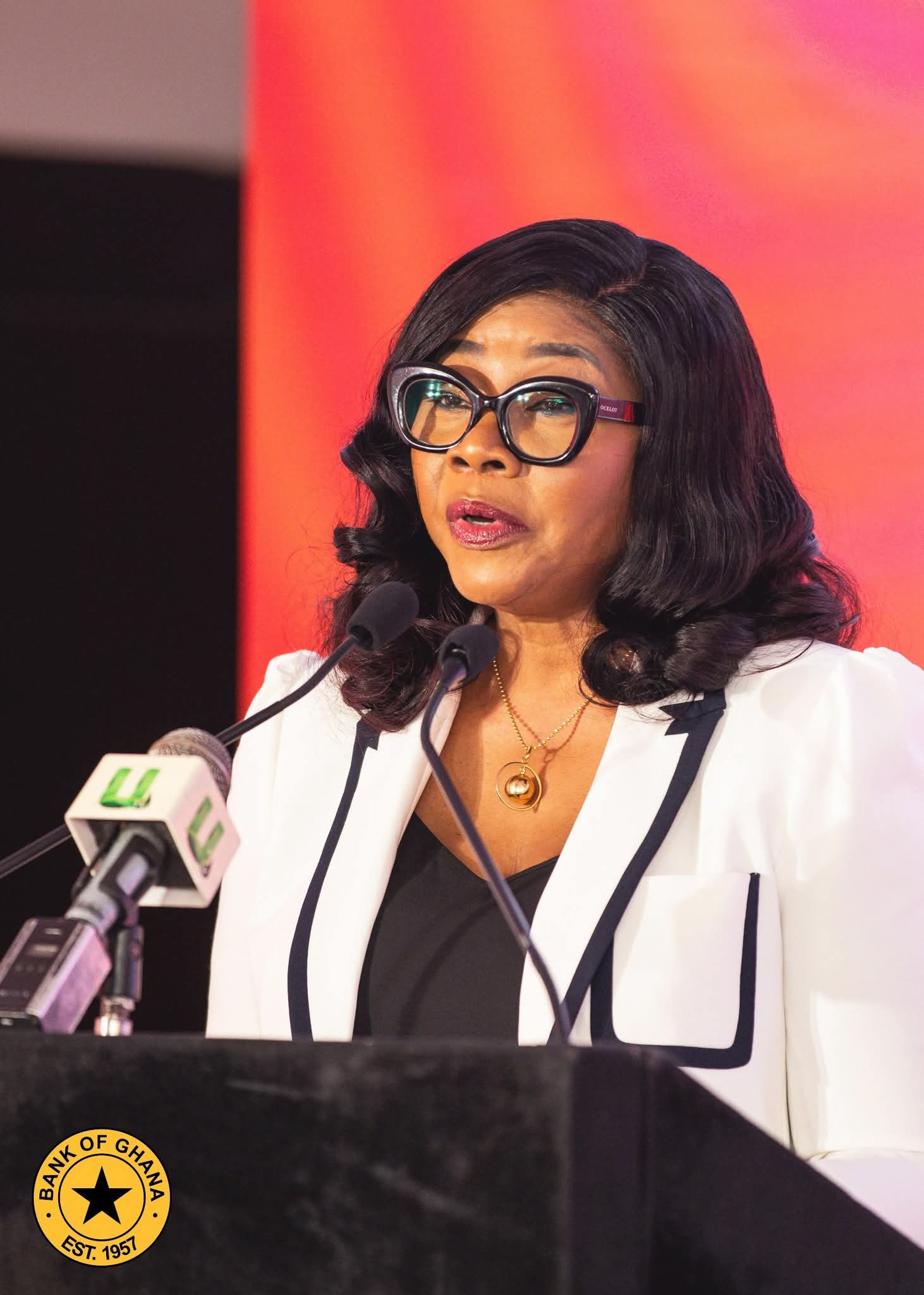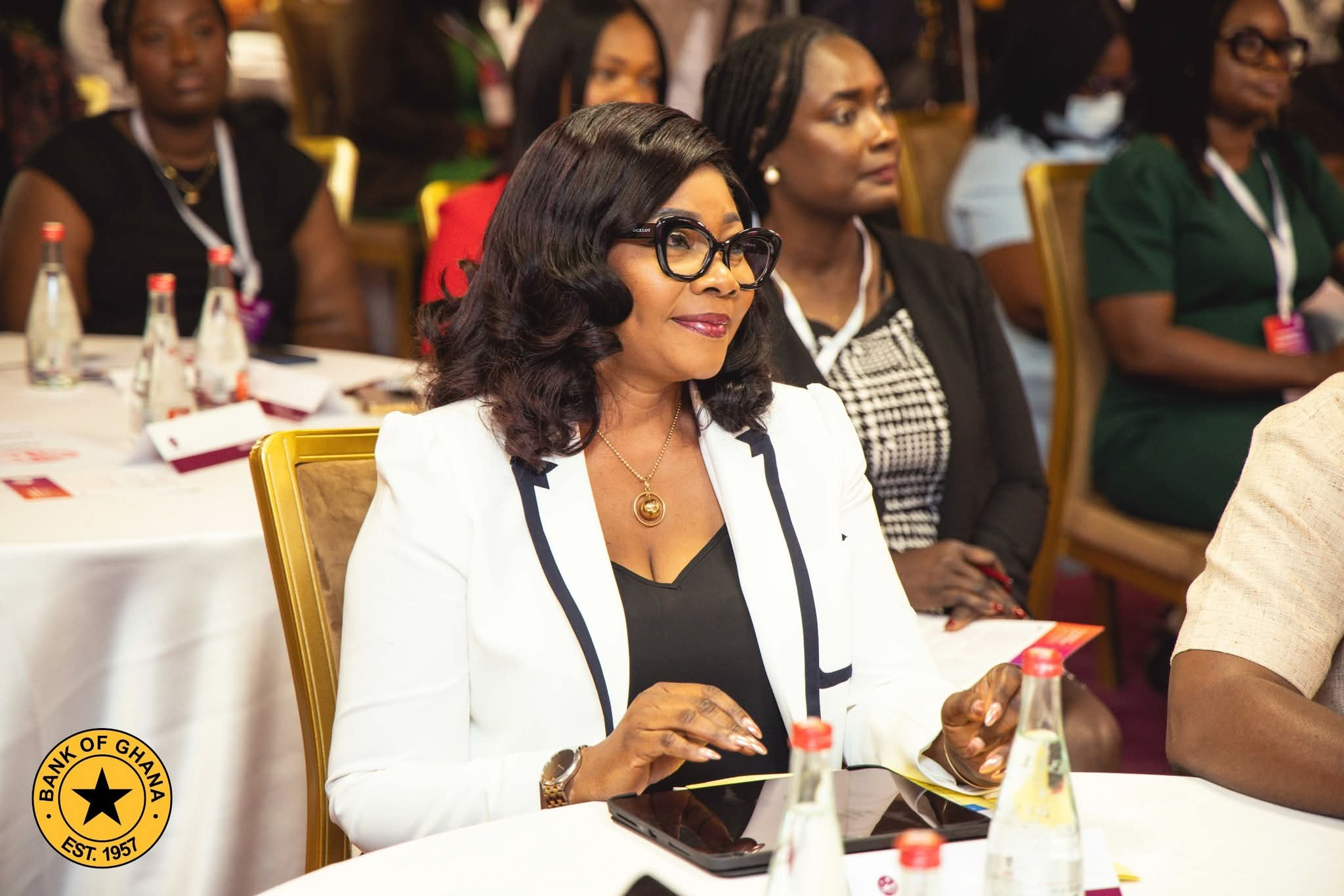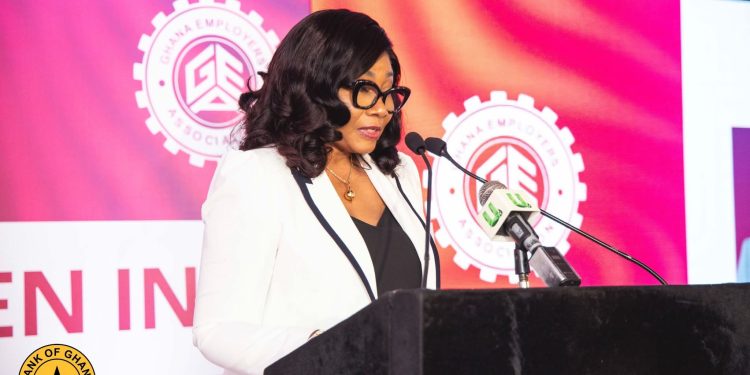BoG 2nd Deputy Governor Urges Firms to Move Beyond Tokenism in Promoting Women to Leadership Roles
Second Deputy Governor of the Bank of Ghana, Mrs. Matilda Asante-Asiedu, has called on corporate organisations to move beyond tokenism and deliberately create leadership opportunities for women in strategic and innovation-driven spaces.
Speaking at the 11th Women in HR Conference organised by the Ghana Employers’ Association in Accra, Mrs. Asante-Asiedu said while women have excelled in Human Resources, Communications, and Corporate Social Responsibility, their influence must extend to boardrooms and executive positions where long-term decisions are shaped.
“Women are not just nurturers of people, we are architects of vision, of strategy, and of transformation. Elevating women beyond HR is not about charity or tokenism, it is about competitiveness and survival in a fast-changing world,” she stated.

She encouraged women to strategically position themselves to fully benefit from opportunities created under Ghana’s Affirmative Action framework, adding that intentionality from corporate boards is key to accelerating inclusion.
Sharing her own career journey from journalism into banking, the Deputy Governor noted that bold risk-taking and continuous learning allowed her to lead major initiatives in retail banking, women’s banking, and digital inclusion projects—an example, she said, of why women must be supported to break traditional boundaries.
Three pillars of leadership
Mrs. Asante-Asiedu identified three areas where women’s leadership can drive transformation:
Culture architects: fostering trust, accountability, and inclusivity to drive workplace performance.
Strategic leaders: embedding purpose into long-term business strategies and balancing profitability with sustainability.
Innovators: developing inclusive solutions that respond to real human needs.
She cited global leaders such as Ngozi Okonjo-Iweala of the World Trade Organisation and Indra Nooyi, former CEO of PepsiCo, alongside Ghanaian corporate leaders like Patricia Obo-Nai of Telecel Ghana, as examples of women whose leadership has had far-reaching impact.

The business case for inclusion
Drawing on research from McKinsey, Deloitte, and Harvard Business Review, the Deputy Governor emphasised that companies with greater female representation in executive roles are more profitable, more innovative, and enjoy higher trust levels. She added that women’s leadership also multiplies benefits for society as women tend to reinvest into families and communities.
Mrs. Asante-Asiedu urged boards to move from symbolic gestures to intentional appointments, ensuring women sit on key committees such as audit, risk, finance, and innovation. She also called for organisations to shift from mentorship to active sponsorship of female talent.
Aligning with national policy
Her remarks were linked to Ghana’s Affirmative Action (Gender Equity) Act, 2024, which sets phased targets for women in leadership—30 percent by 2026, 35 percent by 2028, and 50 percent by 2030—consistent with the UN Sustainable Development Goal 5.
“When women rise, men do not fall. Instead, everyone rises together,” she concluded, describing inclusivity as a national imperative.
Now in its 11th year, the Women in HR Conference has become a flagship platform for empowering female professionals to exchange ideas, sharpen leadership skills, and strengthen their contribution to national development.








